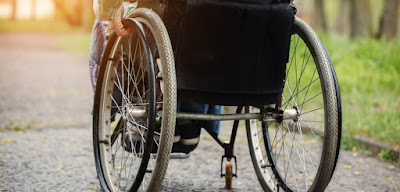Reported by The Daily Telegraph, a London newspaper, in 2013, an American study suggested that one third of patients who suffer a specific form of stroke are having their life support machines switched off when they might recover.
The study from the University of Washington Stroke Centre in Seattle looked at two groups of patients who had suffered brain bleeds. They matched 78 patients whose life support was turned off to 78 patients that still had the machines on.
The researchers found that 38% of those who life support machines were utilized after some reasonable time period made a reasonable recovery, and kept progressing. (About 10% of strokes annually are intracerebral hemorrhages (ICH), that is, brain bleeds). But only 4% of those whose life support machines were turned off made this comparable and early level of recovery, despite the fact that the two groups were compared evenly on stroke severity.
Dr. David Tirschwell, the main author of the study and co-director of the Stroke Centre, said, "Greater patience and less pessimism may be called for in making these life-and-death decisions. These results are yet another piece of evidence suggesting healthcare providers may be overly pessimistic in their assessments of these patients' prognoses, leading families to choose withdrawal of life support before the patient has had a chance to recover from their stroke."
Professor Steven Greenberg, chairman of the International Stroke Conference, and professor of neurology at Harvard Medical School, said, "The finding that fully a third of ICH patients in whom life support is withdrawn might otherwise survive is staggering."
A more recent study in 2019 entitled A Fate Worse Than Death: Prognostication of Devastating Brain Injury, by Pratt et al says,
"[Doctors] should consider the modern literature describing prognosis for devastating brain injury and provide appropriate time for patient recovery and for discussions with the patient's surrogates. Surrogates wish to have a prognosis enumerated even when uncertainty exists. Respect for patient autonomy remains paramount."
Also in 2019, reported by Dr. Robert Truog, is when someone encounters a traumatic brain injury [and stroke is one of them] and is unresponsive, how soon can doctors say if the person has a reasonable chance of recovery? New and stricter guidelines from the American Academy of Neurology prompts making the choice more difficult.
Also in 2019, reported by Dr. Robert Truog, is when someone encounters a traumatic brain injury [and stroke is one of them] and is unresponsive, how soon can doctors say if the person has a reasonable chance of recovery? New and stricter guidelines from the American Academy of Neurology prompts making the choice more difficult.
Truog writes that the practice now in most ICUs is to help families make a decision about whether to stop life support within the first 3 to 5 days after the injury. After 72 hours of observation, the physicians are likely confident in predicting a poor outcome as “extensively supported in the literature.” But is that enough time?
Take me, for example. On life support, my medically-induced coma lasted over a week. And the doctor still wasn't confident of any projected outcomes close to a month later in the ICU. My sons would have been devastated if the doctor recommended stopping life support. I owe my thanks to my sons to counter any thoughts of stopping the machine. And to the doctor, of course, for listening to them.
Brain injury survivors or not, do it now! If you have any future brain injury, write down that you want to live, to enjoy all life has to offer you, for as long as you can. Write it down now to not rush the termination process, and put it on the refrigerator with a magnet. Or place it somewhere else that even a terrible searcher can find it.
Three to five days is nowhere enough to predict outcomes. I am living proof.
As Marcus Tullius Cicero, a contemporary of Caesar, said, "While there's life, there's hope."
Amen to that, brother.
Take me, for example. On life support, my medically-induced coma lasted over a week. And the doctor still wasn't confident of any projected outcomes close to a month later in the ICU. My sons would have been devastated if the doctor recommended stopping life support. I owe my thanks to my sons to counter any thoughts of stopping the machine. And to the doctor, of course, for listening to them.
Brain injury survivors or not, do it now! If you have any future brain injury, write down that you want to live, to enjoy all life has to offer you, for as long as you can. Write it down now to not rush the termination process, and put it on the refrigerator with a magnet. Or place it somewhere else that even a terrible searcher can find it.
Three to five days is nowhere enough to predict outcomes. I am living proof.
As Marcus Tullius Cicero, a contemporary of Caesar, said, "While there's life, there's hope."
Amen to that, brother.































